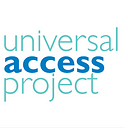Planning a Family, Planning a Future
By Seema Jalan
“I would like my children’s lives to be better, not like mine.”
Isn’t this what all parents want for their children? To have a better, easier life than their own? Perpetwa, from central Uganda, is no different.
She grew up in a small village and dropped out of school in sixth grade because her family did not have the money to continue her education. Her parents then arranged her marriage at age 14. Soon afterwards, Perpetwa began having children. As her family grew, she began to have concerns about money and being able to afford food and schooling for her children. She now has seven children and works as a farmer, growing grains, corn, and beans to make a small income, but she is still concerned about education fees for her younger children as they reach school age. In addition, she has difficulty balancing her work with childcare, especially when taking a young child with her into the garden. “It’s really hard,” she noted.
Perpetwa first started using contraception after hearing about it on the radio.
“I don’t want any other children. …I have enough,” she said of her decision to start using family planning. After trying a contraceptive pill — which she didn’t prefer due to side effects she experienced — Perpetwa now uses Sayana Press, a three-month injectable contraceptive that she learned about from a Village Health Team worker, Alfunsi Sentongo. Alfunsi and the rest of the Village Health Team are community health workers trained by PATH, a USAID-supported global health organization. PATH leveraged assistance from USAID to develop the Sayana Press Uniject injection system that combines contraceptive drug and needle in one, making it easy to distribute and use by both community health workers like Alfunsi and by women who may want to inject themselves.
Perpetwa shared that she is able to build a better life for her children because she now has a reliable form of contraception of her choosing — received every three months through Alfunsi.
“Because I’m planning my family, I’m able to work for my children,” she said. Without access to contraception, “I would be pregnant now. I would be having another baby,” she added.
Women everywhere have the right to decide if and when they have children. Information about and access to effective contraception help realize this right and drive economic prosperity and sustainability for all. Here in the U.S., where we often take birth control for granted, greater access to contraception in the 1960s and 1970s empowered generations of women, myself included, to invest in our education, our careers, and our families — if and when we wanted them. Women around the world just like Perpetwa deserve the same opportunity.
The harmful policies on global reproductive rights from our current U.S. Administration are undermining 50 years of bipartisan leadership and decades of progress, especially for the world’s most marginalized women. The Global Gag Rule, more than one year later, is dismantling efforts across the entire global health system; and the UN Population Fund, without funding from one of its longstanding top donors — the U.S. — is facing funding gaps in some of the most complex humanitarian crises around the world, including its lifesaving work in Bangladesh, Yemen, and beyond.
There are still more than 200 million women globally who simply want to avoid pregnancy and are not using effective contraception. That’s 200 million opportunities to create better futures for this generation and those to come. U.S. leadership on international reproductive health and family planning can help make that a reality.
Learn more about the Universal Access Project and get involved at www.universalaccessproject.org.
